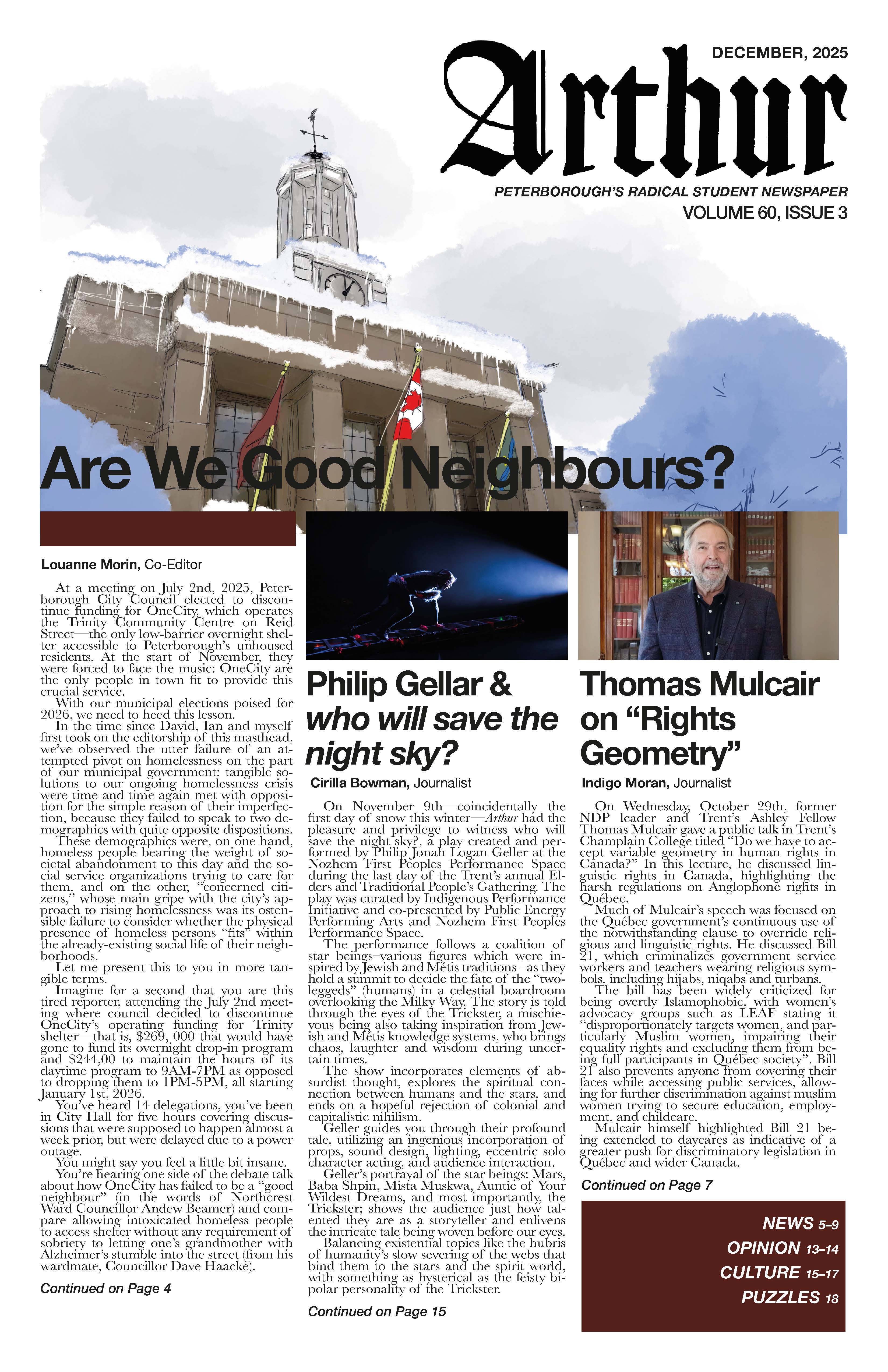On April 24th, Peterborough City Council voted by a margin of 8-3 not to move forward with the drafting of a Naloxone policy for City workers.
Town Ward Councillor, Alex Bierk, introduced an addition to a motion from a Staff Report’s recommendation to draft materials to educate City workers on what to do when they encounter someone they believe is experiencing an overdose.
The addition, which Bierk described as a “reined-in version” of an alternative recommendation from the same staff report which had been voted down at a General Committee meeting earlier this month, would have seen City Staff work in collaboration with an Addiction Action Table and the Peterborough Drug Strategy to create a working group which would explore “additional methods for accessing and utilizing Naloxone and First Aid response at City Facilities.”
Under this motion, City Staff would have been asked to provide a report to Council later on in the Fall of 2023.
The addition, considered separately, only received the support of Councillors Joy Lachica, Matt Crowley, and Bierk with the remaining Councillors and Mayor Jeff Leal voting against.
This decision comes following a series of six impassioned delegations by community members and experts in the field of harm reduction, healthcare, and addiction services.
Jessica Penner of Peterborough Drug Strategy informed Councillors that research suggests that nearly 13% of the population has used prescription opioids in the past twelve months and that a slightly smaller percentage used non-prescription opioids.
”Substance use does not preclude being employed at the City or in any other workplace in Ontario,” Penner said, before reminding Councillors that in instances of overdose, every second counts and that “Naloxone is a life-saving tool.”
When asked by Bierk whether she was aware of any litigation which had arisen as a result of City workers administering Naloxone in Ontario or across Canada, Penner admitted that while the legal side of this issue was not her specialty, that she was not aware of any such cases.
Penner was also careful to note that inaction at the City level on implementing Naloxone policy will have a ripple effect in which business owners and community members will fear implementing their own and will further stigmatize its use.
Program Manager of Four Counties Addiction Services Team (Fourcast), Kerri Kightley, also spoke to the significant benefit a robust Naloxone policy would give to City workers in Peterborough, noting that she had been in contact with staff at the City of Barrie, which has implemented Naloxone as a part of their city’s routine first aid response.
Kightley urged Councillors and Staff to take a look at the policies being set up in Barrie, and noted that they don’t mandate their staff carry a kit - something which some Peterborough Councillors seemed to believe the previously discussed alternative recommendation would have done.
Instead, she was adamant that policies, such as the ones in place in Barrie, create a space in which they can open up a discourse with community members in order to normalize the carrying and use of Naloxone.
“We need to empower all of our citizens,” Kightley said. “It’s something that we have to figure out how to say yes to.”
Dr. Thomas Piggot, Peterborough’s Medical Officer of Health, picked up on what he characterized as a worrying degree of misinformation in the Staff Report which he suggested was an “extremely stigmatizing” way of characterizing what is “a life-saving intervention.”
At one point in his delegation, Dr. Piggott used an expired Naloxone nasal spray on a medical manikin while reading the instructions included in the package to demonstrate the ease with which it can be delivered.
“We would never be having this conversation if it was about an EpiPen,” he said as he called attention to the report’s suggestion that the presence of Naloxone in City spaces would lead to an increase in drug use in those areas.
Dr. Piggott was careful to dismantle the notion that those who are administered Naloxone become aggressive - something the report noted as a risk factor associated with the implementation of a policy. Calling this point “grossly overstated” he voiced concerns about the impacts of when “an influential public body”, such as City Hall, “re-states myths.”
Speaking from experience as a physician who has worked in combat zones as part of Médicins Sans Frontières (Doctors Without Borders) in the Democratic Republic of Congo, Dr. Piggott also dispelled the notion that administering Naloxone is traumatizing for the person providing the care. He explained that often the inability to act in order to save a life is more traumatic than attempting to help.
This is significant given the fact that City workers are tasked with calling 911 in overdose situations and too often find themselves unable to provide meaningful care to individuals in the approximately five minutes it takes for paramedics to arrive.
Despite this context, Otonabee Ward Councillor Kevin Duguay remained unconvinced, stating later on in the meeting that he found nothing in the report which he felt misinformed him. Duguay would ultimately explain that he didn’t feel comfortable adopting a policy when the province has yet to mandate similar measures.
Further delegations focused on the need to normalize the administration of Naloxone alongside the understanding that overdose is not solely experienced by individuals with substance abuse disorders.
Kelly Pensom of the Peterborough 360 Degree Nurse Practitioner-Led Clinic, specifically urged the fact that the City plays an important role in combatting stigma surrounding overdoses and people who use opioids in general
“This can happen to just about anybody,” she said. “Let’s normalize this.”
Peterborough AIDS Resource Network employee, Melissa Higgs, noted that when she walked into the City Hall that evening she saw prominent signs for AED units at the entrances - something she says sends the message that the City does in fact care about providing life-saving measures in the case of cardiac events.
The last delegation came from Kristal Jones of the Elizabeth Fry Society who spoke to the harm reduction principle of being “safe for now” and urged Councillors to empower City workers in order to avoid more “deaths related to poor policy.”
Of the $75,000 cost for city insurance to implement a Naloxone policy, Jones told councillors that she “would pay more than that to bring back some of the folks I have lost this year. I have lost a lot of friends.”
In January 2023 alone, there were ten suspected drug poisoning deaths in Peterborough City and County.
Jones told Council that having spent 15 years as a bartender prior to her current role, has convinced her that it’s more dangerous to cut someone off in a bar than administer Naloxone.
Councillors discussed Bierk’s addition, but ultimately decided that a policy to empower staff would not be forthcoming.
In the midst of a discussion on whether or not the Province had mandated Naloxone training for municipalities (it hasn’t) or if Fleming College or Trent University had Naloxone policies in place (Trent does as a part of its regular First Aid Procedure), Bierk told Council that they were “losing the plot.”
“I’m thinking about what we can do in response to the delegations,” Bierk told his colleagues - eight of whom would later vote to do nothing, again.


.png)


.jpg)


.jpeg)



.jpg)


.jpg)

.jpg)







.png)